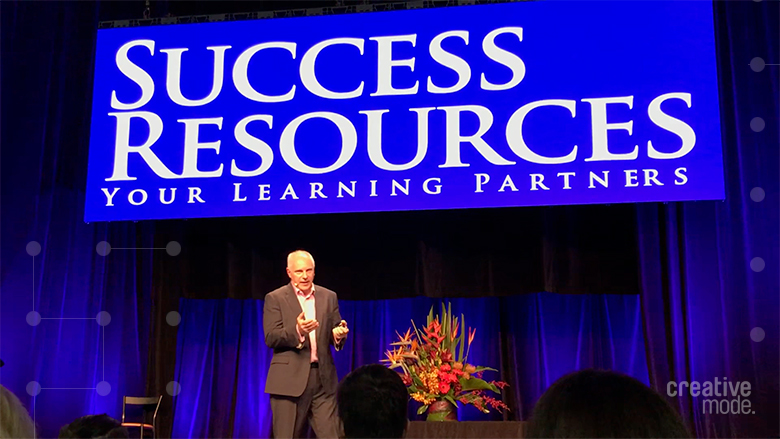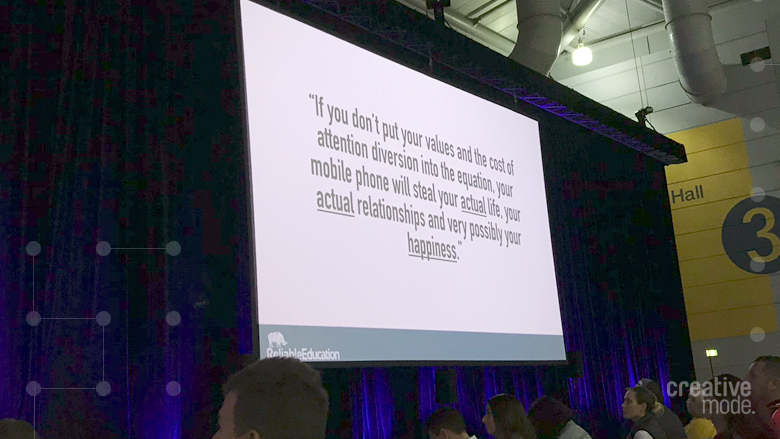
This week was a big one for me. The highlight of which was meeting Gary Vaynerchuk at the Brisbane Convention Centre during Success Squared 2018. You would have heard me say many times that knowledge is great but only if you can reflect and find some practical application for improvement.
Here is my recap of each talk and a little reflection where it’s relevant. There was a lot to cover so I’m breaking it up, culminating with a post about Gary Vee himself. I’ll no doubt be publishing fast and coming back to edit (I’m not a copywriter by any means) so hopefully you’re catching the final version here. I hope you stick with me along the way and find something to inspire action in your own business.
Tony Nash – CEO at Booktopia
Tony was a pleasure to listen too. He came across as an approachable and grounded gentleman. He told a story to demonstrate each point so it was always clear what he meant. I bet he’s trained a few staff in his time so that might be why he was so easy to listen to. I loved how he opened with the comment that his goal was to impart so much knowledge during his talk that the ticket price would be more than paid for in value and every other talk would just be the icing on the cake. We were all there to see Gary of course so the idea was humourous, prompting a laugh from the audience. Truth be told he DID deliver great value and for me it was true. I was most interested in this talk because Tony has a background in recruitment, IT and digital marketing so I was hoping to have a quick chat around my ideas for growth and how I intend to recruit new team members as I go. I didn’t get a chance to talk to him but he did make it clear he was willing to answer questions via LinkedIn or email. This man was part of a team that managed to thrive when other booksellers were shutting up shop. I’m not the only one who thinks that’s incredible. These are my notes on what he had to say.
1. Your success often depends on the quality of the questions you ask. This story related to the third best fishing spot (the fellow fisher wouldn’t divulge the number one spot) that turned out to be terrible because he hadn’t thought to also ask when to fish there, or which bait to use.
2. Understand what your customers want. Even if you can’t deliver that right now, move towards it. When faced with decisions, always ask which option is best for your customer.
I absolutely agree with this. Customer value creation and delivery was my topic for a research report where I formed the opinion that the key to surviving disruption is to know your customers better than anyone. Booktopia survived Amazon no doubt due in part to this. Web design companies like mine have so far survived the likes of Squarespace and Wix but what will happen when they start to invest in better systems and move to improve the quality and effectiveness of their solutions? If you remain close to your customers you’ll see there is usually something you deliver that others just can’t do as well. When you get to that realisation sometimes you also realise that who you thought were your competitors are not actually competitors at all.
3. If you fail, try a new tactic, if you fail again, try a new tactic, if you fail again, try a new … you get the idea. Stay focussed on the outcome and ask ‘what do I have to do to achieve that?’. Workshop it. Marketing ideas? Partnership deals? Stretch goals are good even if you fall short. Intensity of focus causes breakthroughs. Cat, dogs and kittens story.
This was a common theme in some of the other talks. If you have a goal, get specific with it. Break it down. This year through the process of journalling I’ve learned to break it down. Write it down, figure out the main steps, get started on the first one and check in often to see where I’m at. My vision is now MUCH bigger than it used to be but I know I’m not stretching myself so that will be the takeaway for me on this point. Move the bar higher and move a little faster and keep the laser focus strong. Probably a good point to bring into product mix decisions too.
4. Positive conflict. Rowing vs sailing. Vision tempered with reality. All rowing together vs letting the spinnaker fly – you will still move forward.
5. Double win-win. It’s only sustainable if everyone is winning. Suppliers, customers and the business.
6. Build so you CAN sell, even if you don’t intend to sell. This is a Robert Kiyosaki idea (a few speakers referenced him). Policies and systems build value and build the business as an asset.
My take on process these days is that it’s part of your brand. A focus on process delivers a consistent experience. it is essential.
7. You are not your car. If you’re driving a Fiat get out of it the same way you would a Maserati. You are not your boyfriend, your house, your business. I am not my business. Disconnect from your business. What does it need? The definition of pride is knowing where you are going even when it’s pitch black. Are you on-track? Are you off-track?
The analogy Tony then used of a business as a baby crawling, then taking the first steps and eventually leaving home was great. Creative Mode is currently sweet sixteen. There have been some tough times (I will now look at that as puberty) so we’re currently heading to the part where the business leaves home and “parties on” right? Cool. I’m down with that. It’ really is about time.
8. Signs. Road signs are not destinations. The road sign ‘Brisbane’ is not actually Brisbane. It’s not about awards.
9. Break it up. In-tuition. Dis-appointment. Move on. Cap-ability. Get a bigger cap.
10. Bring it on. Emotional rollercoasters are not good. Remain calm and try not to stray too far from the base line. It’s better for business.
And finally…
Run as fast as you can and always watch the end of the track. This was one’s of Tony’s closing comments. It’s probably my favourite. I am constantly reminding new clients that focussing on competitors won’t make their business any better. Focus on your customers. They are the one’s who count. As Tony said, peripheral vision is for competitors. I sometimes lose focus myself when I’m checking out my Google position and start comparing my website with others. Thankfully I also understand that building value for my customers is the main goal and can bring my focus back to where it should be.
I think this last point resonated with me the most because it’s the exact advice I gave my daughter at her second primary school swimming carnival. She had overestimated her ability when signing up for the 50 metre swim age 9 years (stretch goals), resulting in a failed attempt in front of the entire school. At 10 years with experience on her side she signed up for the 25 metre swim (tried a different tactic), swam with great conviction that she would finish this time (intensity of focus) and nailed a third place. She did this with the support of many friends who remembered her pain the previous year and rallied to support her. The place didn’t matter to her as much as the joy of actually finishing and having the support of her friends. It was beautiful.
Nothing keeps Tony Nash up at night but ask him his greatest fear and he’ll say ‘who’s a lovely little boy’. Ask him about that if you ever have the pleasure of meeting him. It’s another good story.
Tony if you’re reading this thank you for making the early start completely worthwhile and for delivering on your promise at the start.


